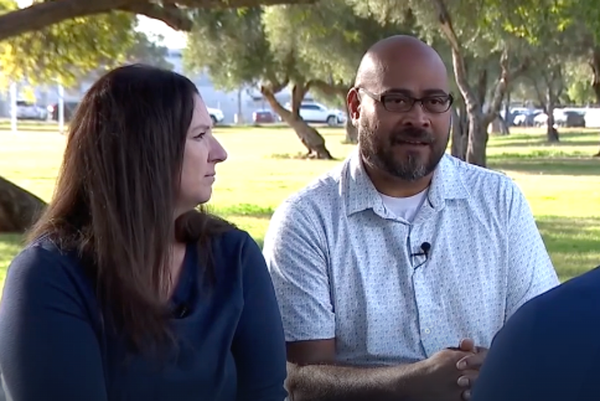
Six African films are screening at this year's Cannes Film Festival, which opened this week and runs until 24 May. The selection spans historical fiction, social drama and crime thrillers – with stories set in Tunis, Cairo, Yaoundé, Lagos and Jerada. The works explore migration, memory, justice and belonging, giving voice to communities often left out of the spotlight.
Promised the Sky opens Un Certain Regard
Franco-Tunisian director Erige Sehiri returns to Cannes with Promised the Sky, which opens the Un Certain Regard section. Her previous film, Under the Fig Trees, drew wide acclaim for its focus on women’s lives and quiet resilience.
Sehiri's new story centres on Marie, an Ivorian pastor living in Tunis, who opens her door to two young women – Naney, a mother seeking a better life, and Jolie, a determined student. Their fragile household is shaken when they take in Kenza, a young girl who has survived a shipwreck.
Set against a backdrop of growing hostility towards sub-Saharan migrants in Tunisia, the film explores themes of solidarity, migration and the search for identity.
Aisha Can't Fly Away shows life in the margins
Morad Mostafa’s debut feature, Aisha Can't Fly Away, also screens in Un Certain Regard. It follows Aisha, a 26-year-old Somali care worker living in Ain Shams, a working-class neighbourhood in Cairo with a large migrant population.
Violence between local gangs and different communities is a constant threat, with the authorities turning a blind eye. Based on Mostafa’s own experience growing up in the area, the film offers an intimate and sometimes unsettling view of daily life for migrants in Egypt.
Mostafa’s earlier short, I Promise You Paradise, was shown at Cannes Critics’ Week in 2023 and went on to win the Poulain d’Or prize at this year’s Fespaco festival. Aisha Can't Fly Away marks Egypt’s first return to the Croisette since Clash in 2016.
Postcard from Cannes #1: Honouree De Niro unleashes attack on ‘philistine’ Trump
Indomptables brings Cameroonian noir to Cannes
French-Cameroonian actor and comedian Thomas Ngijol surprises audiences with Indomptables, a gritty thriller selected for the Directors’ Fortnight. The film follows Commissioner Billong as he investigates the murder of a police officer in Yaoundé.
Inspired by A Crime in Abidjan, a documentary by Mosco Levi Boucault, the story explores justice, corruption and personal limits in a violent and fractured society. Ngijol plays the lead role himself, and the film was shot entirely in the Cameroonian capital.
“The ensemble of the cast is perfect,” the selection team said. “Thomas Ngijol is absolutely extraordinary, not only as a director, but also as an actor.” The team described the film as a powerful and unexpected addition from Cameroon.
My Father’s Shadow marks a first for Nigeria
For the first time, a Nigerian film is part of the official competition at Cannes. My Father’s Shadow, by Akinola Davies Jr, is set during Nigeria’s 1993 presidential election – the country’s first attempt to return to civilian rule after years of military leadership.
That vote, widely seen as the fairest in the nation’s history, was annulled by General Ibrahim Babangida, triggering mass protests. Around 100 people died in the unrest that followed.
In the midst of that chaos, the film follows two brothers spending the day together in Lagos. Blending fiction and autobiography, Davies reflects on family, power and the weight of political memory.
Tom Cruise returns to Cannes with Mission Impossible finale
L’mina reveals Morocco’s hidden miners
In the Moroccan town of Jerada, coal mining never truly stopped despite the official closure of pits in 2001. In L’mina, French-Moroccan visual artist and filmmaker Randa Maroufi reconstructs the reality of this underground economy in a 26-minute short.
The film features Jerada residents who play themselves, acting out scenes drawn from their daily lives. This collaborative approach offers a raw and authentic glimpse into the community’s resilience and resourcefulness.
L’mina is screening in Critics’ Week and is Maroufi’s fifth short film.
Life After Siham explores grief and memory
Life After Siham, by Franco-Egyptian director Namir Abdel Messeeh, is an emotional documentary selected by ACID – a group that supports independent filmmaking at Cannes.
Following the sudden death of his mother, Siham, Abdel Messeeh revisits family archives, old home videos and childhood memories. Through an investigation into his family history between Egypt and France, the film becomes both a tribute and a personal journey into grief, memory and identity.
Messeeh's earlier film, The Virgin, the Copts and Me, combined humour with cultural reflection. This new work strikes a more introspective tone.
Ukraine, Gaza and #MeToo in the spotlight as Cannes Film Festival opens
This article was adapted from the original version in French by RFI's Yann Le Ny







